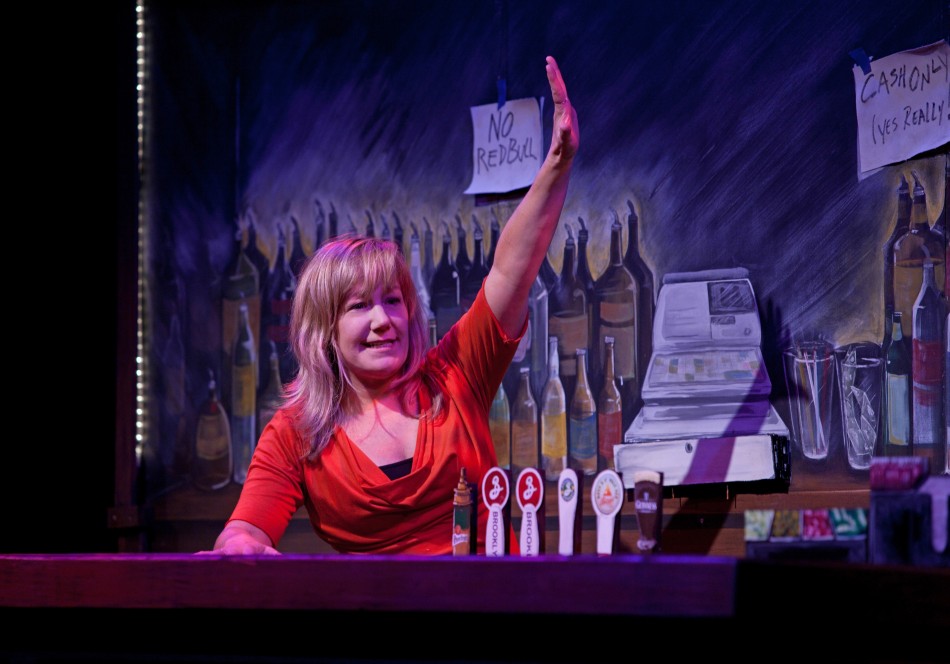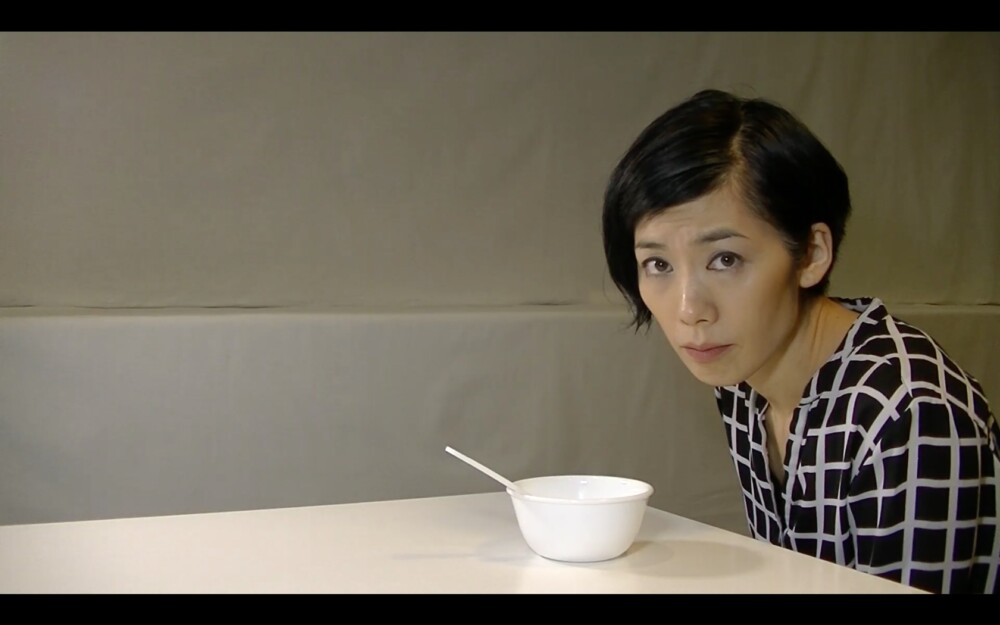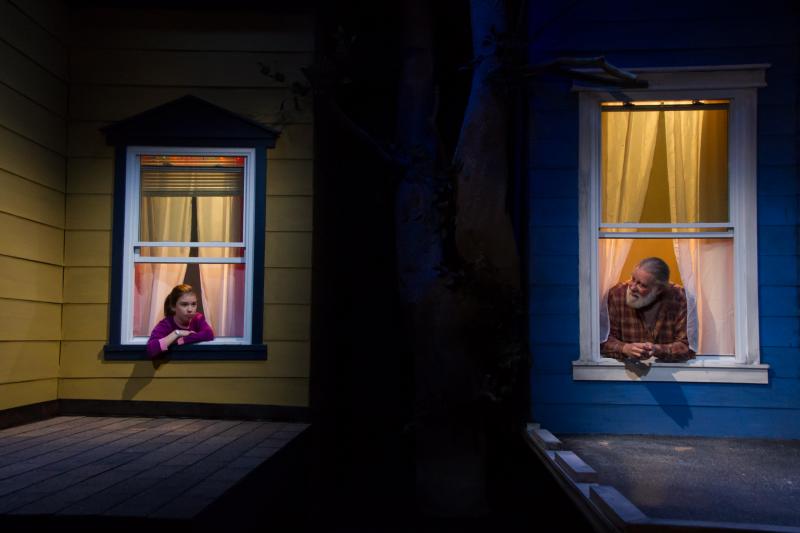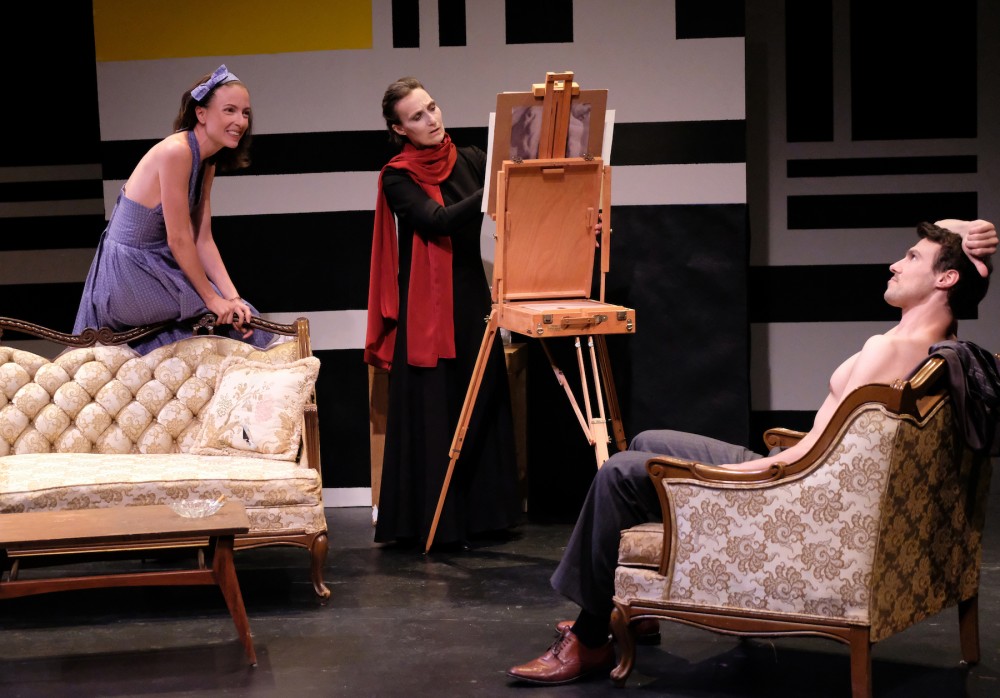The Savannah Disputation is delighting audiences at “the cell.”
by: Beatrice Williams-Rude
This play about religion, sects, and misunderstanding one’s own professed faith, as well as those of others, was written by Evan Smith, but much of it might well have stemmed from the pen of George Bernard Shaw. It is a comedy that deals with religious dogma, blind faith, obedience trumping reason, as well as the unconscious motivations that drive people.


The Bibles are the King James versus an earlier Greek version.
Mary, wonderfully energetically played by Lucy McMichael, is domineering in the extreme, and the cause of her deep-rooted anger will emerge later.
Melissa, charmingly played by Katie Yamulla, is bright and cheery, and like the Energizer Bunny she’s persistent and keeps popping up, rejections notwithstanding.
The unlikely linchpin is sweet, docile Margaret, sensitively portrayed by Charlotte Hampden.
Margaret has been frightened by Melissa’s claims about immortal souls and wants to hear her out. Mary, concerned that Margaret might fall prey to Melissa’s false prophets, invites Father Murphy to dinner when Melissa is scheduled to visit. She envisions Father Murphy eviscerating Melissa.
Father Murphy, played by Michael Gnat, in an understated, nuanced performance, is highly educated, and remarkably tolerant. He has his own demons.
What follows is hilarious, enlightening and gripping.
Melissa denounces Catholicism as idol-worshiping, cannibalistic and polytheistic and cites the Inquisition as proof of its inherent cruelty and iniquity. Father Murphy remains calm and admits the truth about the Inquisition, which infuriates Mary.
In the course of the exchanges Mary discovers what she didn’t know about her own religion and decides to opt out. She’s bitter because after her husband left her she could have remarried—if she’d been an Episcopalian, Methodist, or Unitarian. Her frustration is palpable, as is that of Melissa. Sex emerges as as much the driving force as religion. Father Murphy is the Thursday dinner guest and Mary’s fantasy husband.
There are marvelous one liners and good character development. But the play loses steam, ending with a whimper, rather than a bang. If it were cut by five or ten minutes toward the end, it would be more powerful.
That said, the performances were splendid, as was the direction by Katrin Hilbe. The writing is mostly interesting and probing.
The effective set, a home in Savannah, and lighting are by Sarah Edkins and Chris Steckel, respectively. Stage management is by Marcina Zaccaria and Page Clements is the dialect coach.
This excellent revival was produced by ManyTracks and Me & She Productions.
It will be at the cell, 338 West 23rd Street (between 8th and 9th Aves. in Manhattan) through Dec. 20.






















